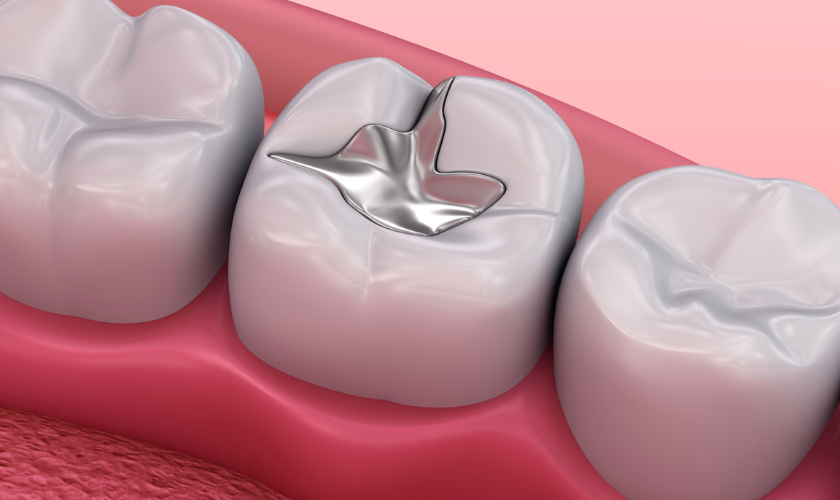
January 8, 2024 in Mercury-Free Dentistry , by Northwest Natural Dentistry | Tags: ceramic fillings, Dental care, Mercury-Free Dentistry, metallic glints, porcelain fillings, Safe Mercury Removal
Hey there! Let's dive into the world of dentistry and talk about something essential: mercury-free dentistry. You might have heard a buzz about it, but what's the deal? Why is it gaining attention? Well, buckle up because we're about to unravel all the ins and outs of this dental practice. When it comes to dental care, there's a buzz around mercury-free dentistry. You may have heard the term thrown around but aren't quite sure what it means or why it matters. Well, buckle up because we're diving into the world of mercury-free dentistry and why it might just change the way you view your dental health.
So, What's the Deal with Mercury-Free Dentistry?
First things first, let's break down the basics. Mercury-free dentistry refers to dental practices that steer clear of using mercury-containing materials in dental treatments, particularly in fillings. Traditional dental amalgam fillings often contain about 50% mercury, along with other metals like silver, tin, and copper.
Now, here's the kicker – mercury is a toxic element. While the American Dental Association (ADA) has long deemed dental amalgam safe for most patients, concerns have arisen about potential mercury exposure and its effects. This is especially concerning for those with allergies or sensitivities.
Why Go Mercury-Free?
- Health Concerns: Advocates of mercury-free dentistry highlight concerns about potential mercury exposure, citing possible adverse effects on overall health. Though controversial, some believe that mercury in amalgam fillings could contribute to various health issues, especially in sensitive individuals.
- Aesthetics: Beyond health, there's an aesthetic angle too. Mercury-free options like composite fillings blend more naturally with your teeth, ensuring a more seamless smile. No more metallic glints when you laugh!
- Environmental Impact: Mercury-free dentistry also champions environmental responsibility. Amalgam waste, when not disposed of properly, can release mercury into the environment, impacting ecosystems and water sources.
What Are the Alternatives?
Enter composite resin fillings – the heroes of mercury-free dentistry! These fillings are made from a blend of plastic and fine glass particles. As a result, it offers a tooth-colored alternative to traditional amalgam. Not only do they match the color of your teeth, but they also bond directly to the tooth. Also, it often requires less drilling and preserves a more natural tooth structure.
Another alternative gaining traction is porcelain or ceramic fillings. These restorations are custom-made in a dental lab to match your tooth's exact color and shape. They're durable, stain-resistant, and biocompatible, making them an attractive option for those opting for mercury-free dental work.
Things to Consider
- Cost Factor: Mercury-free alternatives, such as composite or porcelain fillings, might be pricier than traditional amalgam fillings. The materials used and the specialized technique required can contribute to the higher cost. However, many patients view this as an investment in their long-term dental health and overall well-being.
- Insurance Coverage: Some dental insurance plans may not fully cover the cost of mercury-free alternatives, considering them as elective or cosmetic procedures. It's essential to check your insurance coverage and understand the out-of-pocket expenses before opting for these treatments.
- Durability and Longevity: While composite and porcelain fillings are durable, they may not last as long as traditional amalgam fillings in certain cases. Factors like chewing habits, tooth location, and the size of the filling can influence their longevity. Your dentist can provide insights into the expected lifespan of different filling materials based on your specific situation.
- Sensitivity and Allergies: Individuals with allergies or sensitivities to certain materials should discuss this with their dentist before opting for any dental treatment. Some people might have adverse reactions to components used in composite or porcelain fillings. Your dentist can suggest alternative materials that are better suited for sensitive individuals.
Mercury-free dentistry isn't just a fad – it's a movement toward safer, more aesthetically pleasing, and environmentally responsible dental care. While opinions vary on the safety of dental amalgam, the availability of mercury-free alternatives empowers patients to make informed choices about their dental health. Remember, your smile is precious, and so is your overall health. If you're considering mercury-free options, have a chat with your dentist. Together, you can explore the best choices for your pearly whites, ensuring you beam with confidence, inside and out!
